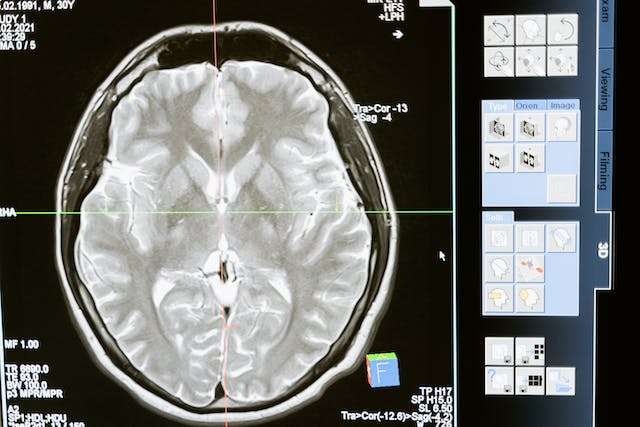Image Credit Pixabay
Glioblastoma is a highly aggressive and malignant type of brain cancer. The symptoms of glioblastoma can vary depending on the location of the tumor within the brain. Common symptoms include.
- Headaches:
- Persistent and severe headaches are a common symptom. The headaches may be more intense in the morning or worsen with changes in body position.
- Seizures:
- Glioblastomas can cause seizures, which may be new or represent a change in the pattern of existing seizures.
- Cognitive Decline:
- Changes in cognitive function, such as memory loss, confusion, and difficulty concentrating, may occur.
- Personality or Behavior Changes:
- Glioblastomas can affect personality, leading to mood swings, irritability, or changes in behavior.
- Motor Skill Impairment:
- Weakness, numbness, or tingling in the arms or legs may occur. Glioblastomas can affect motor skills and coordination.
- Vision Changes:
- Blurred or double vision, visual field deficits, or other vision changes may occur.
- Speech Difficulties:
- Difficulty speaking, slurred speech, or changes in the ability to express thoughts may be present.
- Nausea and Vomiting:
- Nausea and vomiting may occur, especially if the tumor is located in an area that affects the regulation of bodily functions.
- Changes in Sensation:
- Changes in sensation, such as tingling or numbness, may be experienced, often affecting one side of the body.
- Difficulty Swallowing:
- Tumors in certain areas of the brain may lead to difficulty swallowing or changes in appetite.
It's important to note that these symptoms can be caused by various other medical conditions, and their presence does not necessarily indicate glioblastoma. However, if you or someone you know experiences persistent or worsening neurological symptoms, it's crucial to seek medical attention promptly.
Diagnosis typically involves imaging studies such as MRI or CT scans, and a biopsy may be performed to confirm the presence of glioblastoma. Treatment often involves a combination of surgery, radiation therapy, and chemotherapy. Glioblastoma is known for its aggressive nature and challenging prognosis, but advancements in research and treatment options continue to be explored to improve outcomes for individuals diagnosed with this type of brain cancer. If you suspect glioblastoma or have concerns about neurological symptoms, it's essential to consult with a healthcare professional for a thorough evaluation.
News, Health, Travel & Entertainment Telegram Channel Click to Join Infimor
